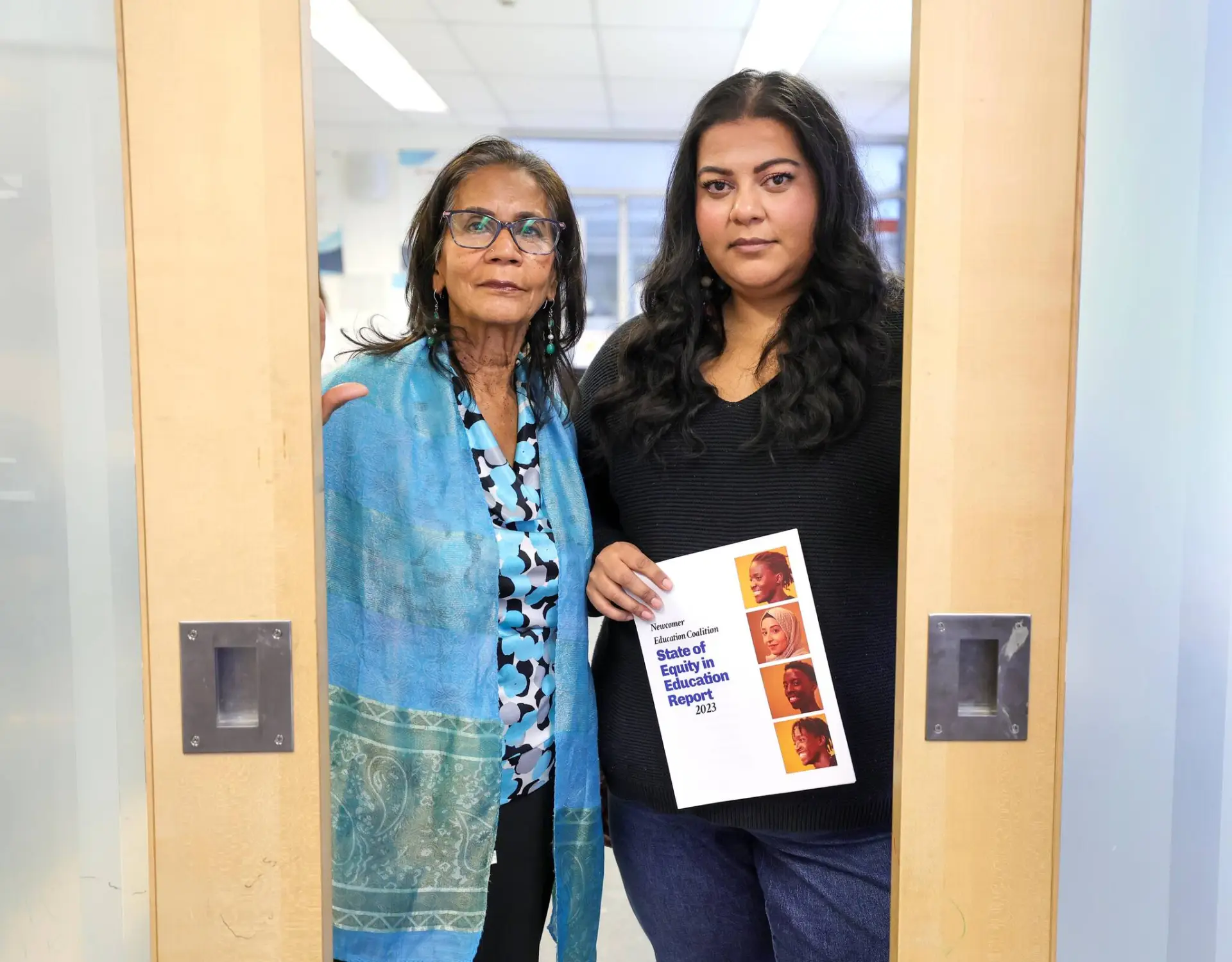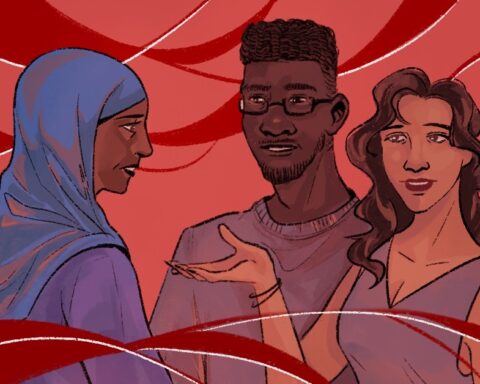Against the backdrop of a shortage of racialized teachers in Manitoba, the Newcomer Education Coalition is appealing to the government to fund a hub that gives internationally trained professionals networking opportunities and guidance to get certified.
This week, the advocacy group released its third report card on the state of equity in education.
The latest document — not unlike the two that preceded it — calls attention to the underrepresentation of immigrant, refugee and racialized teachers in local public schools and why it matters.
“Students deserve to be taught by people who look like them,” said Shereen Denetto, executive director of the Immigrant and Refugee Community Organization of Manitoba, which hosted a news conference to celebrate the launch of the coalition’s report.
“Not simply (in) skin colour and language and so on — but who understand the inner-worlds of children, who understand the lived histories, the family context and communities, who can create that holistic understanding and inclusive learning environment.”
Thirty-four per cent of students in the Winnipeg School Division, the largest in the province, identify as members of visible minorities. That statistic is 24 per cent among teachers.
The coalition proposes faculties of education, school divisions and the province collaborate with community organizations to bridge that gap with a “transition centre” that targets internationally educated teachers and racialized professionals without a permanent contract.
Coalition chairwoman Kathleen Vyrauen said costly upskilling requirements and the time-intensive process of applying for full certification are common frustrations for newcomer teachers.
They are also often told they need “Canadian experience” to obtain a job, said Vyrauen, a project manager at Immigration Partnership Winnipeg and the Ethnocultural Council of Manitoba.
“How do you gain Canadian experience if nobody is willing to give you the chance to be part of the classroom?” she said. “You’re chasing your tail.”
The new report recommends a transition hub be established to offer advocacy and advisory services, information about the Manitoba curriculum and classroom context, and professional language support to newcomers.
The proposal is a one-stop-shop for internationally trained teachers to connect candidates with internships, mentorships, and scholarships to streamline their certification.
It mirrors a defunct program run by the University of Manitoba between 2005 and 2011, during which newcomers could access formal mentorship and complete specialty courses to prepare them for local classrooms.
U of M was successful in graduating almost 40 teachers via four cohorts but the project never passed the pilot phase because the department of labour and immigration then had other priorities.
“We know how to do this, and we know how to do this well,” said Prof. Clea Schmidt, who has more than 20 years of research expertise in diversifying the teacher workforce. “There needs to be the political will and the funding to make it happen.”
Schmidt was among a group of academics who penned an unsuccessful pitch to revive the resource in 2022, citing the importance of employment equity and ensuring “a more representative and responsible teaching force.”
The coalition is asking the new NDP government to reconsider the former government’s rejection.
“We have this amazing group of teachers that have historically been denied in fulfilling their potential and in contributing in much-needed ways,” Schmidt said.
Brandon University is the only Manitoba post-secondary institution with a teachers college that indicated it would support the transition initiative. River East Transcona and Winnipeg school divisions have also indicated they would back the collaborative project.
A spokesperson for the education minister’s office said the government is “committed to improving equity in education” and will review the coalition’s recommendations.
________________________________
Maggie Mactintosh, Local Journalism Initiative Reporter, Winnipeg Free Press
The Local Journalism Initiative supports the creation of original civic journalism that is relevant to the diverse needs of underserved communities across Canada, broadening availability and consumption of local and regional news on matters of civic governance. Launched by the Government of Canada in 2019, the Local Journalism Initiative provides news organizations with funding to hire reporters to cover underserved communities.



